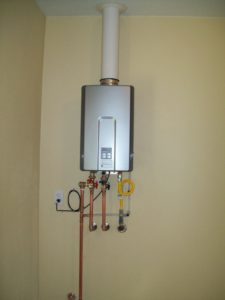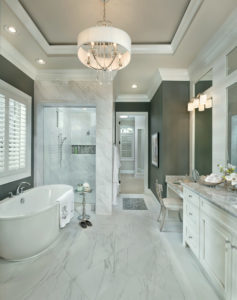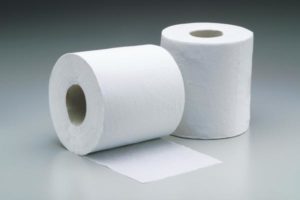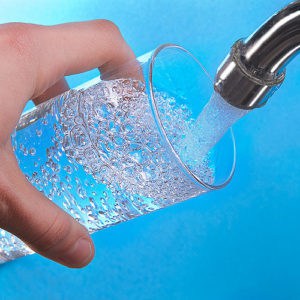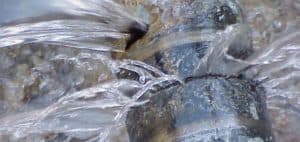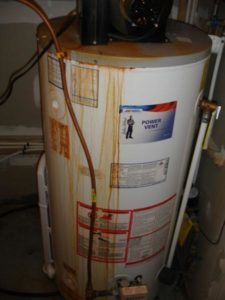Nowadays there are so many models and brands of hot water heaters that the average customer requires some guidelines for choosing the right water heater for his home. We have water heaters of many different functional designs and fuel types. Basically, there are three main types of hot water heaters in the market today based on their functional design. We have the most popular water heater in the United States called the conventional storage or standard tank water heater. The conventional storage water heater comes with a reservoir or storage tank for holding the heated water for later consumption. We also have the tankless water heater also called the demand-type, on-demand, or instantaneous water heater. As you can tell from the names, the tankless water heater has no reservoir or storage tank for holding heated water but rather heats water ion demand after being switched on. And lastly we have the hybrid heat pump water heater. The hybrid heat pump water heater uses a reverse refrigeration technique to absorb heat energy from the environment to heat water. It’s called a hybrid model because it usually features an additional fuel source to supplement the environmental heat during the cold season. Just like conventional storage water heaters, hybrid heat pump water heaters have storage tanks. You should always consider the following factors when choosing a new hot water heater for your home or workplace, and talk it over with your local plumber for his expert advice for your specific situation.
Consider The Efficiency
Out of the three hot water heater models, the hybrid heat pump water heater is considered to be the most efficient because it does not necessarily require any fuel to heat water. The tankless water heater comes in second because it does not loose heat in stored hot water. The conventional storage water heater is the most inefficient model because it loses a lot of heat energy in the stored hot water. It is very important that you consider the efficiency of a water heater to avoid huge energy bills. The water heater accounts for almost 20% of your home energy bill, which means the more inefficient it is, the higher your energy bills. The efficiency factor also factors in the cost of the water heater. Generally the tankless water heater is more expensive to buy and install, but it ends up being the most economical option because of its low energy bills and because it’s easier and cheaper to maintain and it lasts longer than all the other models.
Consider The Installation Space
The tankless water heater has no reservoir or storage tank and hence takes up about a fifth of the total space used by a conventional storage or a hybrid heat pump water heater. This means that if you have limited space for installing your hot water heater, then the tankless model is the best. Before you buy a new hot water heater, you should consult a reliable DC water heater plumber for advice regarding the versatility of installation based on the available installation space.
Consider The Fuel Type
And last but not least, you should always consider the fuel type of the water heater. Most water heaters use gas or electricity but there are also some hybrid models that combine two or more fuels. We also have modern solar water heaters that use sunlight. You should always consider the availability, affordability, and efficiency of the fuel type of any water heater before purchase.




